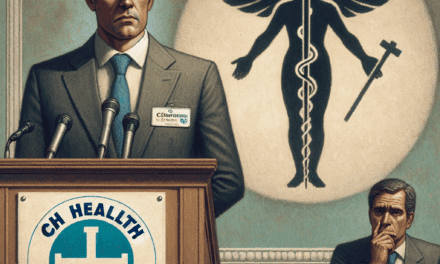Cassidy Urges Postponement of CDC Vaccine Meeting, Confronts RFK Jr
The ongoing debate surrounding vaccines has become increasingly polarized, with public figures taking strong stances on both sides. Recently, Senator Bill Cassidy of Louisiana called for the postponement of a crucial meeting organized by the Centers for Disease Control and Prevention (CDC) regarding vaccine recommendations. This call to action coincided with a confrontation with Robert F. Kennedy Jr. (RFK Jr.), a prominent vaccine skeptic. This article delves into the implications of Cassidy’s request, the context of the CDC meeting, the role of RFK Jr. in the vaccine debate, and the broader societal impacts of vaccine hesitancy.
Understanding the CDC Vaccine Meeting
The CDC regularly convenes meetings to discuss vaccine recommendations, safety, and efficacy. These meetings are critical for public health policy and often involve expert testimonies, data analysis, and public input. The upcoming meeting was particularly significant due to the ongoing COVID-19 pandemic and the introduction of new vaccines targeting emerging variants.
Senator Cassidy’s call for postponement raises several questions about the timing and necessity of such meetings. Here are some key points to consider:
- Importance of Timely Vaccine Recommendations: The CDC’s recommendations can significantly influence vaccination rates across the country. Delaying these meetings could hinder timely public health responses.
- Public Trust in Health Institutions: Frequent changes or delays in vaccine recommendations can erode public trust in health institutions, which is already fragile due to misinformation.
- Impact on Healthcare Providers: Healthcare providers rely on CDC guidelines to inform their patients about vaccinations. A postponement could create confusion and uncertainty in clinical settings.
- Political Motivations: Cassidy’s motivations for urging a postponement may be politically driven, reflecting the growing divide in public opinion on vaccines.
- Public Health Implications: Delays in vaccine recommendations can have dire consequences, especially in the context of a pandemic where timely vaccination is crucial for controlling outbreaks.
In summary, the CDC vaccine meeting serves as a pivotal platform for shaping public health policy. Cassidy’s request for postponement could have far-reaching implications for vaccination efforts and public health outcomes.
The Role of Senator Bill Cassidy
Senator Bill Cassidy, a physician by training, has been an influential figure in the healthcare debate in the United States. His recent actions regarding the CDC meeting reflect a complex interplay of public health, politics, and personal beliefs.
Here are some aspects of Cassidy’s role in the vaccine debate:
- Medical Background: As a physician, Cassidy has a unique perspective on healthcare issues. His medical training may inform his views on vaccine safety and efficacy, but it also places him in a position of responsibility to communicate accurate information to the public.
- Political Landscape: Cassidy’s actions can be seen as a response to the growing anti-vaccine sentiment among certain voter demographics. By aligning with these sentiments, he may be attempting to bolster his political support.
- Public Statements: Cassidy has made various public statements regarding vaccines, often emphasizing the importance of informed consent and parental choice. This stance can resonate with constituents who are skeptical of government mandates.
- Engagement with Experts: Cassidy’s approach to the CDC meeting may involve seeking input from medical experts and public health officials. His ability to navigate these discussions is crucial for fostering a balanced dialogue.
- Future Implications: Cassidy’s actions may set a precedent for how other politicians engage with public health issues, particularly in an era where misinformation is rampant.
In conclusion, Senator Cassidy’s role in the vaccine debate is multifaceted, reflecting both his medical background and the political landscape in which he operates. His call for postponement of the CDC meeting underscores the complexities of navigating public health policy in a divided society.
Robert F. Kennedy Jr. and Vaccine Skepticism
Robert F. Kennedy Jr. has emerged as one of the most prominent figures in the anti-vaccine movement. His advocacy against vaccines has garnered significant attention, often polarizing public opinion. Understanding his influence is crucial to grasping the broader context of the vaccine debate.
Key points regarding RFK Jr.’s role include:
- Historical Context: Kennedy’s skepticism towards vaccines is rooted in a long-standing belief that they may be linked to various health issues, including autism. This belief has been widely discredited by scientific research, yet it continues to resonate with many.
- Media Influence: Kennedy has effectively utilized social media and public appearances to spread his message. His ability to connect with audiences has amplified his influence, particularly among those who distrust mainstream media and government institutions.
- Legal Background: As an environmental attorney, Kennedy’s legal expertise lends credibility to his arguments, even when they lack scientific backing. This has allowed him to challenge vaccine policies in court and rally support for his cause.
- Public Perception: While many view Kennedy as a controversial figure, he has a dedicated following that believes in his message. This division highlights the challenges faced by public health officials in combating misinformation.
- Impact on Vaccine Hesitancy: Kennedy’s advocacy has contributed to rising vaccine hesitancy, particularly among parents. This trend poses significant risks to public health, as lower vaccination rates can lead to outbreaks of preventable diseases.
In summary, RFK Jr.’s role in the vaccine debate exemplifies the challenges of addressing misinformation and skepticism. His influence underscores the need for effective communication strategies to counteract the narratives that fuel vaccine hesitancy.
The Consequences of Vaccine Hesitancy
The rise of vaccine hesitancy has significant implications for public health, particularly in the context of infectious diseases. Understanding these consequences is essential for addressing the challenges posed by declining vaccination rates.
Some of the key consequences include:
- Increased Disease Outbreaks: Vaccine hesitancy has been linked to outbreaks of diseases that were previously under control, such as measles and whooping cough. For instance, the 2019 measles outbreak in the United States was largely attributed to unvaccinated populations.
- Strain on Healthcare Systems: Outbreaks of vaccine-preventable diseases can place a significant burden on healthcare systems, leading to increased hospitalizations and healthcare costs. This strain can divert resources away from other critical health services.
- Impact on Herd Immunity: Vaccination is crucial for maintaining herd immunity, which protects vulnerable populations who cannot be vaccinated. Declining vaccination rates threaten this protective barrier, increasing the risk of outbreaks.
- Long-Term Public Health Consequences: The long-term effects of vaccine hesitancy can lead to a resurgence of diseases that were once considered eradicated. This can have lasting impacts on public health policy and community health outcomes.
- Social Division: The vaccine debate has become a polarizing issue, leading to divisions within communities. This social fragmentation can hinder collaborative public health efforts and create an environment of mistrust.
In conclusion, the consequences of vaccine hesitancy extend beyond individual choices; they pose significant risks to public health and community well-being. Addressing these challenges requires a concerted effort from public health officials, policymakers, and community leaders.
Strategies for Addressing Vaccine Hesitancy
Combatting vaccine hesitancy requires a multifaceted approach that addresses the underlying concerns and misinformation driving skepticism. Effective strategies can help restore public trust in vaccines and improve vaccination rates.
Some effective strategies include:
- Education and Awareness Campaigns: Public health campaigns that provide accurate information about vaccine safety and efficacy can help dispel myths and misconceptions. Engaging storytelling and relatable narratives can make these campaigns more effective.
- Community Engagement: Involving community leaders and trusted figures in vaccination efforts can enhance credibility. Grassroots initiatives that foster dialogue and address specific community concerns can be particularly impactful.
- Healthcare Provider Training: Training healthcare providers to communicate effectively about vaccines is crucial. Providers should be equipped to address patient concerns empathetically and provide evidence-based information.
- Utilizing Social Media: Leveraging social media platforms to share accurate information and counter misinformation can reach a broader audience. Collaborating with influencers who support vaccination can amplify positive messages.
- Policy Interventions: Implementing policies that encourage vaccination, such as school vaccination requirements, can help increase rates. However, these policies should be accompanied by efforts to educate and engage communities.
In summary, addressing vaccine hesitancy requires a comprehensive approach that combines education, community engagement, and policy interventions. By fostering trust and providing accurate information, public health officials can work towards improving vaccination rates and protecting community health.
Conclusion
The call for postponement of the CDC vaccine meeting by Senator Bill Cassidy, coupled with the confrontation with RFK Jr., highlights the complexities of the vaccine debate in contemporary society. As vaccine hesitancy continues to rise, understanding the roles of key figures, the consequences of skepticism, and effective strategies for addressing these challenges is crucial.
Key takeaways from this discussion include:
- The importance of timely vaccine recommendations from the CDC and the potential implications of delays.
- Senator Cassidy’s multifaceted role in the vaccine debate, influenced by his medical background and political motivations.
- The significant impact of RFK Jr.’s advocacy on public perception and vaccine hesitancy.
- The dire consequences of declining vaccination rates for public health and community well-being.
- The necessity of comprehensive strategies to combat vaccine hesitancy and restore public trust in vaccines.
As society navigates the complexities of vaccine discourse, fostering informed dialogue and promoting accurate information will be essential for safeguarding public health and ensuring the well-being of communities across the nation.




